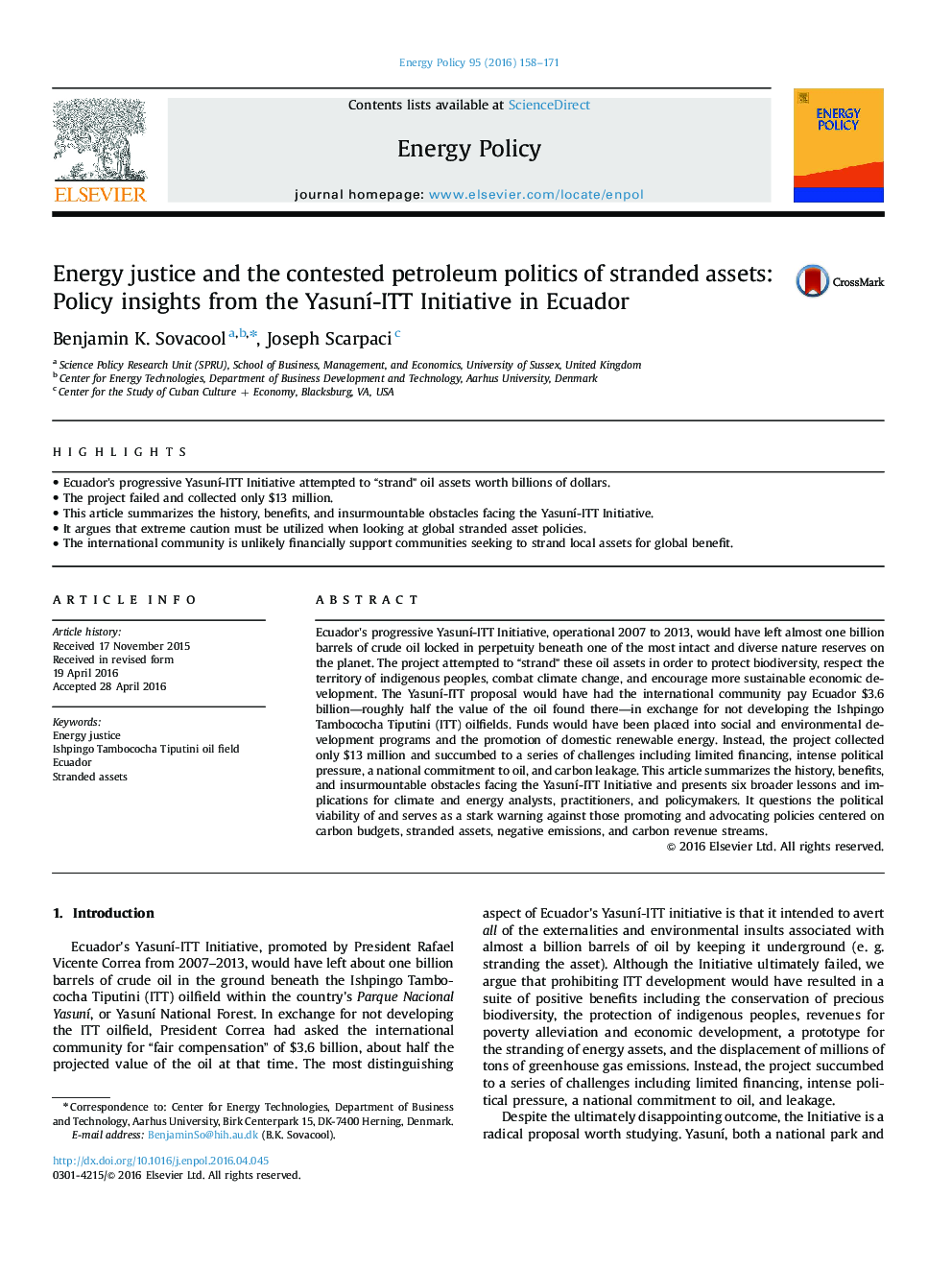| Article ID | Journal | Published Year | Pages | File Type |
|---|---|---|---|---|
| 7399312 | Energy Policy | 2016 | 14 Pages |
Abstract
Ecuador's progressive YasunÃ-ITT Initiative, operational 2007 to 2013, would have left almost one billion barrels of crude oil locked in perpetuity beneath one of the most intact and diverse nature reserves on the planet. The project attempted to “strand” these oil assets in order to protect biodiversity, respect the territory of indigenous peoples, combat climate change, and encourage more sustainable economic development. The YasunÃ-ITT proposal would have had the international community pay Ecuador $3.6 billion-roughly half the value of the oil found there-in exchange for not developing the Ishpingo Tambococha Tiputini (ITT) oilfields. Funds would have been placed into social and environmental development programs and the promotion of domestic renewable energy. Instead, the project collected only $13 million and succumbed to a series of challenges including limited financing, intense political pressure, a national commitment to oil, and carbon leakage. This article summarizes the history, benefits, and insurmountable obstacles facing the YasunÃ-ITT Initiative and presents six broader lessons and implications for climate and energy analysts, practitioners, and policymakers. It questions the political viability of and serves as a stark warning against those promoting and advocating policies centered on carbon budgets, stranded assets, negative emissions, and carbon revenue streams.
Keywords
Related Topics
Physical Sciences and Engineering
Energy
Energy Engineering and Power Technology
Authors
Benjamin K. Sovacool, Joseph Scarpaci,
